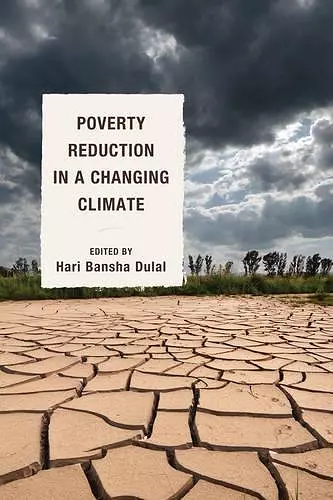Poverty Reduction in a Changing Climate
Format:Paperback
Publisher:Bloomsbury Publishing PLC
Published:25th Feb '15
Currently unavailable, and unfortunately no date known when it will be back
This paperback is available in another edition too:
- Hardback£93.00(9780739168011)

Poverty reduction challenges in the twenty-first century are not the same as those from the previous century. The shift is due in no small part to climate change and climate-related weather disasters, such as extreme flood and drought. The magnitude and frequency of such events are only expected to increase in the coming decades, affecting more and more impoverished people across the globe.
Poverty Reduction in a Changing Climate, edited by Hari Bansha Dulal, is a work which discusses the new innovations and funding mechanisms which have emerged in response to the rise of climate-related challenges in the twenty-first century. Dulal and the text's contributors explore the synergies and implications of those innovations with respect to poverty alleviation goals. This collection brings together a range of scholars from different backgrounds, ranging from political science, economics, public policy, and environmental science, all analyzing poverty reduction challenges and opportunities from different, forward-thinking perspectives.
The important debates about climate change and poverty reduction usually occur in separate policy spheres. This compelling book argues that the impacts of climate change and poverty are increasingly interconnected. I highly recommend this timely and well-written volume because it shows how poverty alleviation and equitable growth can occur in the face of climate change—if policy makers are willing to address climate change and economic development in a holistic manner. -- Christopher D. Merrett, Western Illinois University
This edited collection provides a refreshing breadth in the perspectives that it presents and the issues that it tackles....Part One of the book...is particularly interesting, providing an analysis of the influence of the poor as a voting block in India, positing that divisions along ethnic, caste, religious, and other lines make the likelihood of India’s poor converging on a collective action agenda against poverty unlikely, despite India’s democratic electoral system. * E-International Relations *
ISBN: 9781498510936
Dimensions: 227mm x 153mm x 25mm
Weight: 676g
430 pages